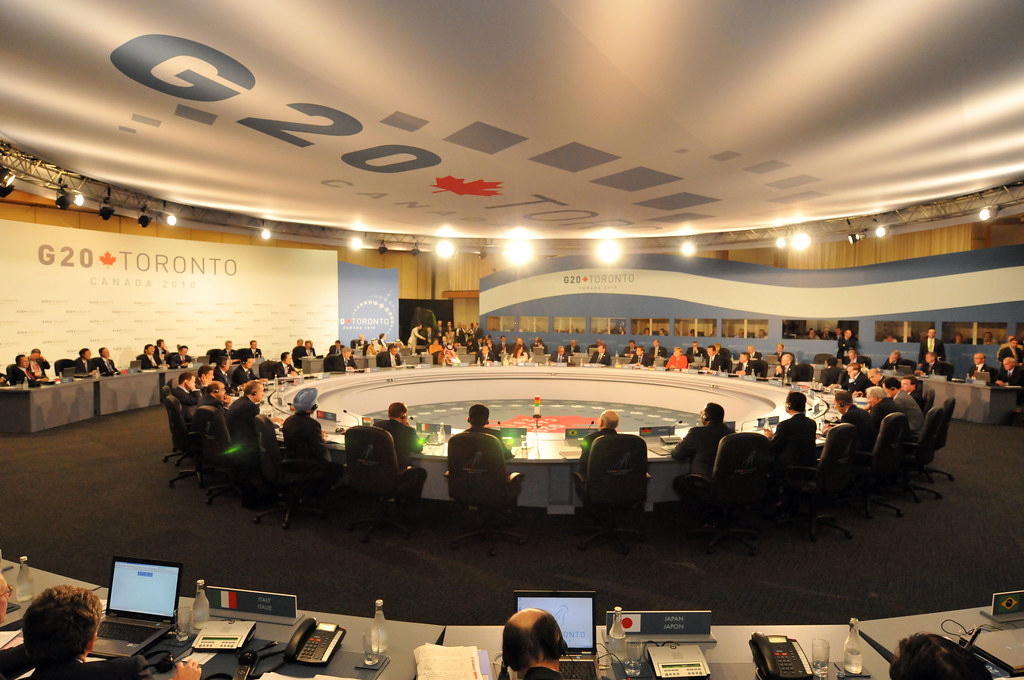May 18, 2009
The U.S. should do more to support the International Monetary Fund and its efforts to stabilize the global economy, CGD president Nancy Birdsall and three other witnesses told the House Financial Services Subcommittee on International Monetary Policy and Trade last week. Birdsall, former IMF research director Simon Johnson, director of the G-24 secretariat Amar Bhattacharya, and former Bush-administration Treasury official Tim Adams testified at the hearing on the implications of the G-20 Summit for low-income countries and the global economy. Their statements struck a surprisingly similar tone: stability in emerging and developing countries is critical to our own economic recovery and global security, and the IMF is an important means for helping these countries cope with the global economic crisis. Subcommittee Chairman Gregory Meeks(D-NY) said in his opening remarks that “beyond the altruistic reasons for assisting poor and emerging countries, we have strong business, economic, and geopolitical reasons to follow through on the commitments made by President Obama and the other leaders at the G-20 Summit.” He argued that the G-20 commitments would directly support American industry, prevent further systemic risk in global capital markets and encourage continued sound economic reforms and promote socio-political stability.Ranking member Gary (R-CA) also spoke of the global nature of the crisis and related risks such as terrorism, saying “just as low-income countries are impacted by the downturn in the U.S., the U.S. is affected by the downturn in emerging markets.”Birdsall began her testimony with a metaphor:
In the global village we have constructed, we live in the center in what is still the biggest house. We started a fire at the center that has spread quickly and puts others in grave danger. We have a responsibility to help—indeed to lead in raising resources to fight the fire and limit its damages not only close to home but further afield among our smaller, poorer neighbors.Birdsall then argued that U.S. economic recovery depends on the recovery in emerging markets. In 2008, she noted, U.S. growth relied almost entirely on exports, about one-third of which went to China, India, Brazil, Mexico, and other emerging markets; 10 percent of U.S. jobs (about 12 million) depend directly on these exports. More broadly, she said, successful global development is critical to U.S. prosperity and security, and an effective IMF response to the crisis is necessary to help developing countries protect and extend recent development gains. Birdsall supported the administration’s request for $100 billion in additional lending resources for the IMF. She also said that the U.S. should push for faster and deeper governance reforms at the IMF, including open, merit-based selection of the next head, without regard to nationality.Amar Bhattacharya, who directs the G-24, a group of emerging and developing countries, said in his testimony that the crisis originated in mature markets but is having a disproportionate impact on developing countries through sharply contracting exports, declining remittances, falling commodity prices and massive withdrawal of private capital flows. He said the international financial institutions and especially the IMF can help contain the crisis. He also noted that emerging markets and developing countries accounted for more than 75 percent of global growth and almost 50 percent of the increase in import demand before the crisis, saying:
Economic recovery in these countries is therefore critical to global growth and to the growth of U.S. exports that in turn must be a bulwark for U.S. recovery. Third, we cannot forget about the plight of the poorest countries not just because of the moral imperative but because how important economic and social progress in these countries is to peace and security all over the world.Simon Johnson, who previously served as IMF chief counselor and director of research at the IMF, also urged Congress to support additional resources and staff at the IMF. He said:
Low income countries need to receive considerable additional resources in order to weather the crisis. This crisis is not of their making and, prior to this shock, poorer countries were making considerable progress along the lines of implementing exactly the policies advised by richer countries and the International Monetary Fund (IMF).Tim Adams, who was Under Secretary for International Affairs and Trade at the Treasury Department during the Bush administration, hit similar points in his testimony:
It is in our national security interest to ensure that financial and economic crises don’t destabilize fragile states, which might prompt either internal or external forces, possibly hostile to U.S. interests, to attempt to gain power and influence. Many of the recent recipients of IMF support (e.g., Mexico, Colombia, Poland, Ukraine, and Pakistan) are key allies and/or critical actors in the success of achieving our foreign policy and national security objectives. . . . U.S. prosperity is intertwined with developing nations.In follow up questions, members of the subcommittee acknowledged that fostering stability in emerging and developing economies is critical for U.S. recovery. The challenge, several said, was how to explain to bailout-weary Americans the need for an additional $100 billion in lending resources for the IMF—notwithstanding that the United States would receive in exchange an interest-bearing account at the IMF, so the loan would not contribute to the U.S. deficit.It seems that at least some Americans get it. Johnson, polled readers about whether the U.S. should do more to support the IMF in a post on the Washington Post blog, The Hearing. Of the 440 votes cast when I last looked, 64 percent said yes, 10 percent said maybe, and 25 percent said no. While it is possible that Washington Post readers (and those who respond to polls on an economics blog) are more likely than the general population to view this favorably, I nonetheless find the response encouraging.
Your Turn: Should the U.S. Do More to Prop Up the IMF?

Disclaimer
CGD blog posts reflect the views of the authors, drawing on prior research and experience in their areas of expertise. CGD is a nonpartisan, independent organization and does not take institutional positions.





